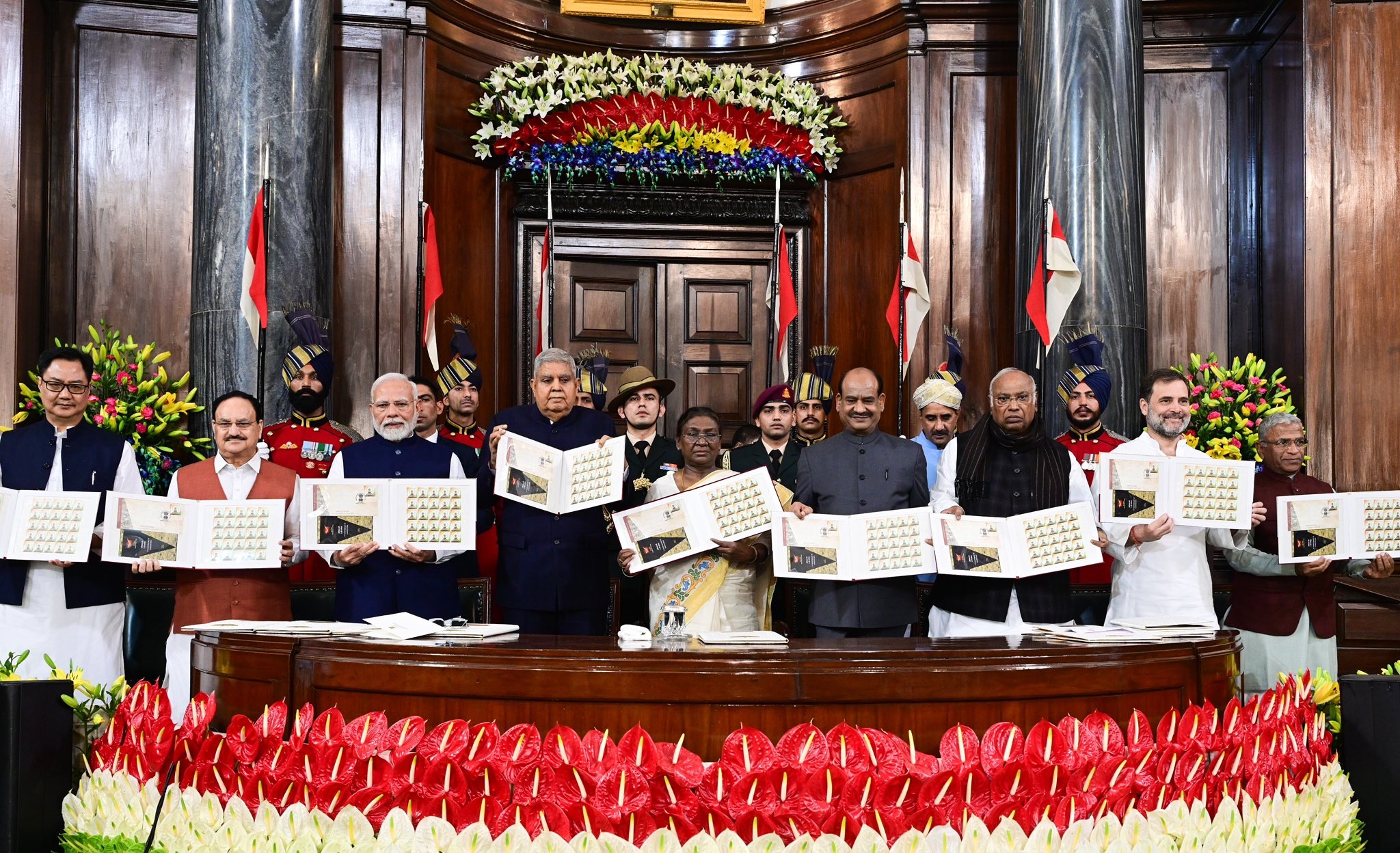Constitution Day Becomes a Political Battleground

On the occasion of Constitution Day, which marks the 75th anniversary of the adoption of the Indian Constitution, various government, non-government, and political events were organized across the country, but the day was not immune to political debate. While the central government launched a year-long series of programs to commemorate 75 years of adopting the Constitution, the opposition Congress party announced a "Constitution Protector Campaign" set to run for two months, culminating on January 26, 2025.
During the Constitution Day ceremony at the Supreme Court, Prime Minister Narendra Modi reflected on the challenges faced by the Constitution after independence, noting that it had successfully addressed every issue the country encountered. He also highlighted that the Constitution is now fully implemented in Jammu and Kashmir, with the region observing its first-ever Constitution Day. Modi stated that the country has now been provided with a new judicial system focused on swift justice. He extended his best wishes to the nation on Constitution Day and reminded citizens of the significance of democracy, asserting that the Constitution will continue to guide the nation.
In the same speech, the Prime Minister also acknowledged the sacrifices of Dr. B.R. Ambedkar, emphasizing the progress India has made in recent years. He noted that over 100 million women have been provided free gas connections, senior citizens are now connected through Digital India, and millions have benefited from government schemes such as Mission Indradhanush for vaccination, housing programs for the poor, and electricity connections for rural areas.
The central government kicked off a year-long celebration of the Constitution's 75th anniversary at the old Parliament House's Central Hall, where President Droupadi Murmu, Vice President Jagdeep Dhankhar, and Lok Sabha Speaker Om Birla addressed members of both Houses of Parliament. Prime Minister Modi, Union Cabinet Ministers, Opposition Leaders Mallikarjun Kharge and Rahul Gandhi, BJP National President J.P. Nadda, and various other lawmakers were present. To mark the occasion, a commemorative coin and a special postal stamp were issued, and the Constitution was released in Sanskrit and Maithili. A short film on the historical journey of the Indian Constitution was also screened.
Meanwhile, at Delhi’s Talkatora Stadium, Congress launched its "Constitution Protector Campaign." Congress President Mallikarjun Kharge and Leader of the Opposition in the Lok Sabha, Rahul Gandhi, criticized the ruling government for allegedly undermining the Constitution during the past decade. Kharge called for the return of ballot paper elections, while Rahul Gandhi once again raised concerns over the state of equality in India, questioning whether citizens were truly receiving the rights guaranteed by the Constitution. He described the Indian Constitution as a book of truth and non-violence, inspired by leaders like Gandhi, Shivaji, Phule, and Buddha, and contrasted it with the ideologies of the BJP, RSS, and Vinayak Savarkar, which he claimed are at odds with the values of the Constitution.
Rahul Gandhi attacked the BJP, PM Modi, and the RSS for allegedly working against the interests of Dalits, Adivasis, backward classes, and minorities. He reiterated Congress's commitment to fighting for the rights of all citizens, in line with the Constitution's core principles. Gandhi also called for the removal of the 50% cap on reservation and for caste-based census data to be used in policy-making. He praised the Congress-led Telangana government's caste-based census initiative, promising that Congress would conduct a similar census if it came to power at the Centre.
In a significant move, Kharge also targeted industrialist Gautam Adani, accusing him of funding the BJP's campaign during the recent Maharashtra Assembly elections. For the first time in a public address, Kharge called for the complete banning of EVMs (Electronic Voting Machines) and a return to ballot paper elections. He argued that votes from marginalized communities, which largely go to Congress, are being wasted due to the alleged flaws in the EVM system.
In the wake of recent state elections in Haryana and Maharashtra, many Congress leaders had privately expressed doubts about the credibility of EVMs, but Kharge's public call for a nationwide movement against EVMs marked a significant escalation. He announced that Congress would engage with other opposition parties to launch a large-scale campaign for ballot paper elections.
As the year-long celebrations of the Constitution's 75th anniversary unfold, it remains to be seen whether political parties will continue their confrontational rhetoric or come together to uphold the spirit of the Constitution and work towards the common good.
साभार :
© CopyRight Pressnote.in | A Avid Web Solutions Venture.






